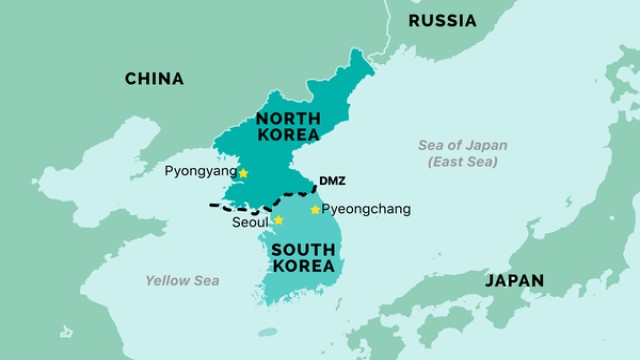From genomic information to internet-connected cars, the United States is rethinking its data protection policies -- with further trade curbs aimed at China in the cards -- as tech like AI brings new risks.
In the past week alone, President Joe Biden took steps expanding Washington's national security toolkit, sounding the alarm on possible risks from Chinese vehicles and tech, a day after issuing an order to limit the flow of sensitive personal data abroad.
The fear is that such data can be used to track citizens, including those with sensitive jobs, or train artificial intelligence models.
By identifying patterns in datasets to identify individuals whose government affiliations would otherwise be disguised, enemies may be able to utilize AI to target US citizens for espionage or blackmail. This is because AI developed with sensitive data may be used for such purposes.
"Strategic and national security value of data" is becoming apparent in Washington, according to Lindsay Gorman, senior fellow at the US German Marshall Fund.
The Commerce Department's inquiry into Chinese technology's potential vulnerabilities in connected cars, she said, is "a long-overdue look into the application layer of the future internet."
"We should expect further investigations into the data produced across the internet of things," she stated.
"Recalibration"
The Center for Strategic and International Studies' Emily Benson stated that the actions reflect "broader concerns about national security risks emanating from unfettered free access to data" (CSIS).
Up until recently, Chinese companies could lawfully purchase large quantities of US data, according to senior fellow Martin Chorzempa of the Peterson Institute for International Economics.
According to him, this leads to a "imbalance," and the most recent order plugs a "loophole."
Washington has attempted to restrict foreign corporations' access to US data and their ability to purchase US companies on the basis of national security concerns, but businesses are still able to obtain the information.
According to a Duke University research that was released in November, sensitive information about military personnel who are currently on active duty may be obtained for as little as 12 cents per record through data brokers.
Director of CSIS's trade and technology project Benson stated, "Overall what we do see is the recalibration of the United States' approach," which has historically skewed towards unrestricted dataflows.
She told AFP, "It seems like that era is behind us."
- Revolutionary technology -
The data strategy is part of a larger effort by Washington to support economic expansion and preserve US technological superiority over China, all the while erecting barriers for national security.
Artificial intelligence (AI) is important because it can swiftly evaluate and manipulate large amounts of data for espionage or cyber operations.
"A part of this is a foundational security approach to reining in certain high-risk AI capabilities," Benson stated.
Meanwhile, Washington has been driving other government programs like the CHIPS Act, which invests $39 billion in industrial incentives, in an effort to stay ahead in AI.
AI has been a "game-changer" in terms of demand for sophisticated chips, according to Commerce Secretary Gina Raimondo, who also noted that the US would someday be able to house the whole supply chain for making such semiconductors.
As per the US Semiconductor Industry Association, the majority of the world's semiconductor production capacity is presently found in China and East Asia.
- Are you keeping up? -
"China has been very proactive at building out its own data protection and data security regime," Chorzempa stated.
"Restrictions on what data can be transferred cross-border is one element of that," he continued, pointing out that international businesses might not always be able to obtain data from China on its residents.
According to CSIS's Benson, US actions show that the country is becoming closer to the data governance policies of its close allies.
The General Data Protection Regulation of 2018 and other regulations governing the transfer of business data in bulk across devices are examples of the stringent data protection laws enforced by the European Union.
Japan has advocated for the flow. It is admirable that Japan is working to encourage data flow while upholding privacy and security standards. It demonstrates their dedication to striking a balance between fostering innovation and defending the rights of individuals. It will be fascinating to observe the impact of the current US initiatives and whether further convergence of data governance regimes results from them. data while maintaining confidence in security and privacy.
"It'll be interesting to see to what degree (US action) facilitates greater convergence among regimes, or whether we're into unchartered territory when it comes to digital governance," stated Benson.
End//voice7news.tv






























Comment: